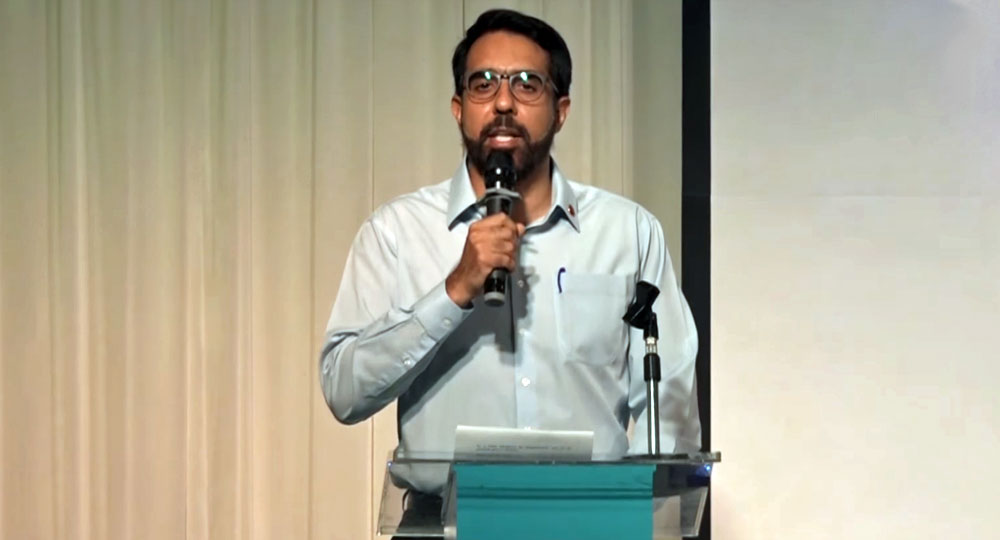Workers' Party Assistant Secretary-General Pritam Singh livened up an otherwise staid first day of debate on the Budget Statement, announcing that his party will not be able to support the planned Goods and Services Tax (GST) hike.
The first opposition MP to speak on Tuesday, Feb. 27, Pritam said the government has not yet provided sufficient clarity on what they would need the additional money they would be collecting for.
In his speech, Pritam pointed out the following:
- The announcement of a carbon tax included a projected revenue of S$1 billion, but another revenue-raising measure, the imposition of GST on imported services, did not include projected revenue.
- The government's move towards making Singapore a Smart Nation and a cashless society would make tax collection more efficient and raise future tax revenue.
Said Pritam:
"GST may well have to rise, but Singaporeans could be more likely to accept it if the government considers the pros and cons of moving from the established orthodoxy, and consider new approaches that improve social protection thresholds for all, and elderly Singaporeans in particular."
[related_story]
Alternative money-makers
In advancing his argument on this front, Pritam was effectively bringing points made on the hike by political commentators and observers online and outside the political space over the past week, into the parliamentary arena.
NIRC
One idea Pritam mentioned was a temporary increase in the Net Investment Returns Contribution (NIRC), from 50 to 60 per cent, to fund "lumpy" infrastructure projects like Changi's Terminal 5 and Changi East projects and the High Speed Rail.
Once this lump-sum spending is done, the NIRC could go back down to 50 per cent.
This echoes a proposal from economist Donald Low, who said the government could safely raise the NIRC to 60 per cent of returns while still adding to the principal sum of the reserves, adding that there was "nothing scientific" about maintaining the NIRC at 50 per cent.
Land sales
Pritam also brought up what he describes as a "relatively radical" idea to reconsider the role played by land sales in the government's budget.
Currently, revenue derived from land sales is not included in the government's income, he notes. However, the government remains the largest landowner in Singapore, with the majority of land comprising of 99-year-or-below leasehold properties.
Although Singapore is land-scarce, Pritam argues that land sales will remain "very healthy" in the next few decades, as leases on HDB flats still have some way to go.
Recent announcements like the move of port facilities from Tanjong Pagar and the move of Paya Lebar airport will also free up valuable tracts of land for the government to sell, he added.
Rebuttal
Pritam also addressed two points made on the government website Factually, that argues against using money from land sales for budgetary spending. These are:
- The exclusion prevents the government from unnecessarily selling land to make up for budget shortfalls. To this, Pritam said it could be addressed with a cap on spending revenue.
- Income from land sales are invested and already available to the Government for spending through the NIRC. In response to this, Pritam said not mixing the two revenue streams together would allow for greater transparency, and make it more obvious when poor investment decisions are made.
It's about flexibility
Pritam said that using land sales could give the government flexibility, and ensure that social protections for all Singaporeans are strengthened.
Instead of taking the position that all spending proposals is "tantamount to raiding the reserves", the government could instead "take a strategic perspective" of our reserves.
According to Pritam, the people who keep the economy humming must be equipped to succeed in tomorrow's economy, but some "sacred cows" might need to be slain.
The Budget debate continues in Parliament on Wednesday, ahead of the commencement of the Committee of Supply debates in March.
Related articles:
Top image by Guan Zhen Tan.
If you like what you read, follow us on Facebook, Instagram, Twitter and Telegram to get the latest updates.
